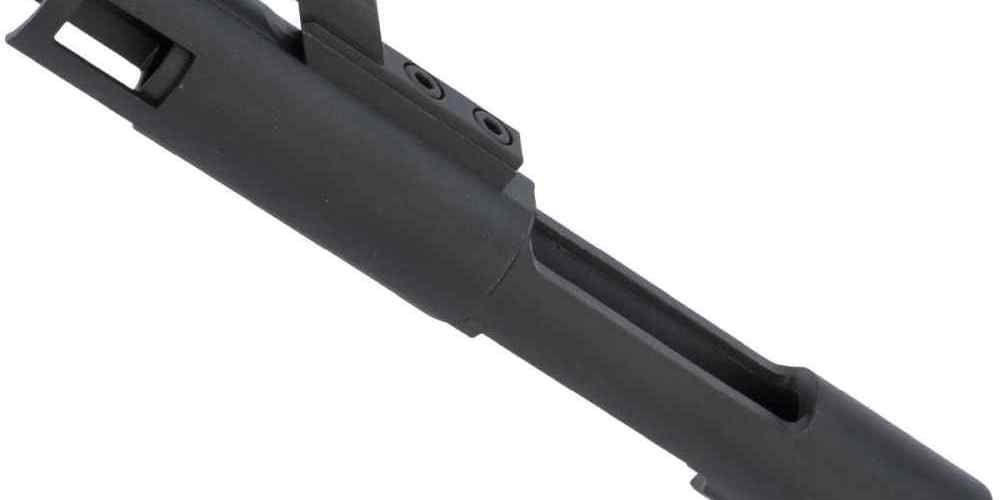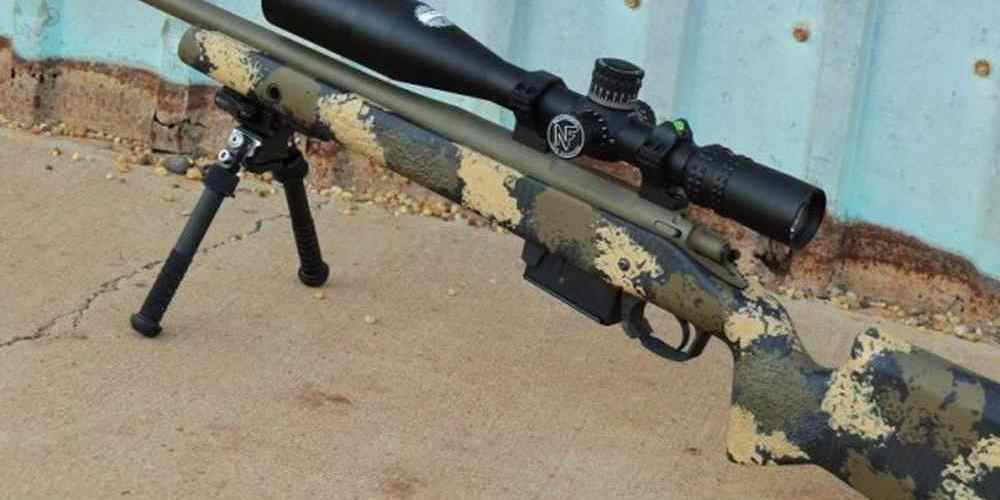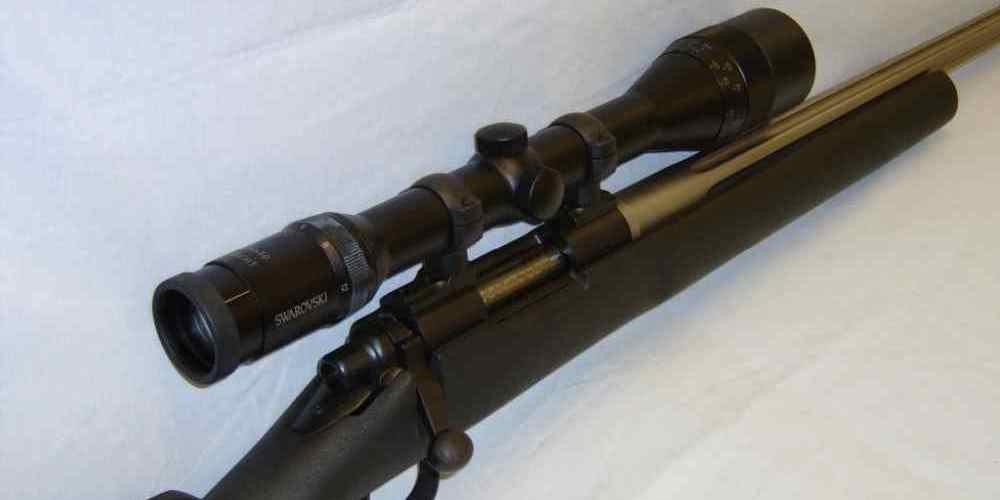“Precision under pressure: How environmental conditions affect rifle bolt performance.”
Effects of Temperature on Rifle Bolt Performance
When it comes to shooting accuracy, every detail matters. One often overlooked factor that can significantly impact rifle performance is environmental conditions. In particular, temperature plays a crucial role in how a rifle bolt functions. Understanding the effects of temperature on rifle bolt performance is essential for any serious shooter.
Temperature can affect the metal properties of a rifle bolt, which in turn can impact its reliability and accuracy. As temperature increases, metals expand, and as temperature decreases, metals contract. This expansion and contraction can cause changes in the dimensions of the bolt, potentially leading to issues such as increased friction, binding, or even failure to cycle properly.
In cold temperatures, metal contracts, which can lead to tighter clearances between moving parts in the bolt. This can result in increased friction and resistance, making it more difficult for the bolt to cycle smoothly. In extreme cases, the bolt may even freeze up completely, rendering the rifle inoperable. To combat this issue, shooters may need to use lubricants specifically designed for cold weather conditions to ensure smooth operation.
On the other hand, in hot temperatures, metal expands, which can lead to looser clearances between moving parts in the bolt. This can result in increased wear and tear on the bolt components, potentially leading to decreased reliability and accuracy over time. Shooters may need to monitor their rifle’s performance more closely in hot weather and be prepared to make adjustments as needed.
In addition to changes in metal properties, temperature can also affect the performance of ammunition. Extreme temperatures can cause changes in powder burn rates, which can impact bullet velocity and trajectory. Shooters may need to adjust their loads accordingly to compensate for these changes and maintain consistent accuracy.
To mitigate the effects of temperature on rifle bolt performance, shooters can take several steps. One option is to use high-quality materials and coatings that are designed to withstand a wide range of temperatures. Additionally, regular maintenance and cleaning of the rifle bolt can help prevent issues such as corrosion or excessive wear.
Another important factor to consider is the storage of the rifle. Extreme temperatures, whether hot or cold, can have a detrimental effect on the rifle and its components. Storing the rifle in a controlled environment, such as a climate-controlled gun safe, can help maintain optimal performance and prolong the life of the rifle bolt.
In conclusion, the impact of environmental conditions, particularly temperature, on rifle bolt performance cannot be overstated. Shooters must be aware of how temperature changes can affect their rifle’s reliability and accuracy and take steps to mitigate these effects. By understanding the relationship between temperature and rifle bolt performance, shooters can ensure that their equipment performs at its best in any conditions.

Influence of Humidity on Rifle Bolt Functionality
When it comes to rifle performance, many factors can influence how well a firearm functions. One often overlooked factor is the impact of environmental conditions on rifle bolt performance. In particular, humidity can play a significant role in how well a rifle bolt operates.
Humidity refers to the amount of water vapor in the air. High humidity levels can cause metal surfaces to become damp, which can lead to rust and corrosion. This can be particularly problematic for rifle bolts, which rely on smooth, clean surfaces to function properly. When a rifle bolt becomes rusty or corroded, it can lead to jamming or misfires, which can be dangerous for the shooter.
In addition to causing rust and corrosion, high humidity levels can also affect the lubrication of a rifle bolt. Many gun owners use lubricants to keep their rifle bolts operating smoothly. However, in high humidity conditions, these lubricants can become diluted or washed away, leading to increased friction and wear on the bolt. This can cause the bolt to become stiff or difficult to operate, which can impact the accuracy and reliability of the rifle.
To combat the negative effects of humidity on rifle bolt performance, there are a few steps that gun owners can take. One option is to invest in a high-quality gun safe or storage case that is designed to regulate humidity levels. These safes often come equipped with dehumidifiers or desiccants that can help keep moisture levels in check and prevent rust and corrosion from forming on the rifle bolt.
Another option is to regularly clean and lubricate the rifle bolt to prevent rust and corrosion from forming. Gun owners should also be mindful of the type of lubricant they use, as some may be more prone to washing away in high humidity conditions. Using a high-quality, water-resistant lubricant can help ensure that the rifle bolt operates smoothly even in humid environments.
In addition to taking preventative measures, gun owners should also be mindful of the impact of humidity on rifle bolt performance when shooting in humid conditions. If possible, shooters should try to avoid shooting in high humidity environments, as this can increase the likelihood of rust, corrosion, and lubricant washout. If shooting in high humidity conditions is unavoidable, gun owners should take extra care to clean and lubricate their rifle bolts after each use to prevent damage.
Overall, the impact of humidity on rifle bolt performance is an important factor to consider for gun owners. By taking preventative measures and being mindful of the effects of humidity on rifle bolts, shooters can help ensure that their firearms operate smoothly and reliably in any environment.
Impact of Altitude on Rifle Bolt Operation
When it comes to rifle performance, many factors can influence how well a firearm operates. One often overlooked factor is the impact of environmental conditions on rifle bolt performance. In this article, we will explore how altitude can affect the operation of a rifle bolt and what shooters can do to ensure their firearm functions optimally in different altitudes.
Altitude plays a significant role in how a rifle bolt operates due to the changes in air pressure and temperature that occur at higher elevations. As altitude increases, air pressure decreases, which can affect the cycling of the bolt and the overall performance of the firearm. Additionally, lower temperatures at higher altitudes can also impact the lubrication and movement of the bolt.
One of the main issues that shooters may encounter at higher altitudes is increased bolt resistance. As air pressure decreases, the resistance on the bolt can increase, making it more difficult to cycle the action smoothly. This can result in slower cycling times, increased wear on the bolt components, and potential malfunctions during shooting.
To combat the effects of altitude on rifle bolt performance, shooters can take several steps to ensure their firearm operates optimally. One of the most important things shooters can do is to properly lubricate the bolt and other moving parts of the firearm. Using a high-quality lubricant that is designed to withstand lower temperatures can help reduce friction and ensure smooth operation of the bolt.
Additionally, shooters can also adjust the tension on the bolt to compensate for the increased resistance at higher altitudes. By adjusting the tension, shooters can help reduce the amount of force required to cycle the bolt, making it easier to operate the firearm in challenging conditions.
Another important factor to consider when shooting at higher altitudes is the type of ammunition being used. Different types of ammunition may perform differently at higher altitudes, so shooters should test different loads to find the one that works best for their specific firearm and shooting conditions.
Overall, the impact of altitude on rifle bolt performance is an important consideration for shooters who regularly shoot at higher elevations. By understanding how altitude can affect the operation of a rifle bolt and taking steps to mitigate these effects, shooters can ensure their firearm functions optimally in any environment.
In conclusion, the impact of environmental conditions on rifle bolt performance, specifically altitude, is an important factor for shooters to consider. By understanding how altitude can affect the operation of a rifle bolt and taking steps to mitigate these effects, shooters can ensure their firearm functions optimally in any environment. Proper lubrication, adjusting bolt tension, and testing different types of ammunition are all important steps shooters can take to ensure their rifle operates smoothly at higher altitudes. By being aware of these factors and taking proactive measures, shooters can enjoy consistent and reliable performance from their firearms no matter where they are shooting.
Corrosion Resistance of Rifle Bolts in Different Environments
Rifle bolts are a critical component of any firearm, responsible for chambering and extracting cartridges during the firing process. The performance of a rifle bolt can be greatly affected by environmental conditions, particularly when it comes to corrosion resistance. Corrosion is the gradual degradation of metal due to exposure to moisture, chemicals, or other elements in the environment. In this article, we will explore how different environmental conditions can impact the corrosion resistance of rifle bolts and ultimately affect their performance.
One of the most common environmental factors that can lead to corrosion of rifle bolts is humidity. High levels of humidity can create a moist environment that promotes the formation of rust on metal surfaces. This can be particularly problematic for rifle bolts that are not properly protected with a corrosion-resistant coating. In humid environments, it is essential to regularly clean and lubricate rifle bolts to prevent corrosion from taking hold.
Another environmental factor that can impact the corrosion resistance of rifle bolts is exposure to saltwater. Saltwater is highly corrosive and can quickly degrade metal surfaces if not properly protected. Rifle bolts used in marine environments or coastal regions are especially susceptible to saltwater corrosion. To combat this, rifle bolts should be made from corrosion-resistant materials such as stainless steel or coated with a protective finish that can withstand exposure to saltwater.
In addition to humidity and saltwater, exposure to chemicals can also affect the corrosion resistance of rifle bolts. Chemicals such as solvents, oils, and cleaning agents can strip away protective coatings and leave metal surfaces vulnerable to corrosion. It is important to use only recommended cleaning products and to thoroughly dry and lubricate rifle bolts after cleaning to prevent corrosion from occurring.
Temperature extremes can also impact the corrosion resistance of rifle bolts. Extreme heat can accelerate the oxidation process, leading to faster corrosion of metal surfaces. On the other hand, extreme cold can cause metal to become brittle and more susceptible to corrosion. Rifle bolts should be stored in a controlled environment to minimize exposure to temperature extremes and maintain their corrosion resistance.
In conclusion, the impact of environmental conditions on the corrosion resistance of rifle bolts cannot be understated. Humidity, saltwater, chemicals, and temperature extremes can all contribute to the degradation of metal surfaces and ultimately affect the performance of rifle bolts. To ensure the longevity and reliability of rifle bolts, it is essential to properly clean, lubricate, and protect them from the elements. By taking proactive measures to prevent corrosion, rifle owners can maintain the performance of their firearms and extend the lifespan of their rifle bolts.
Importance of Proper Maintenance in Extreme Environmental Conditions
When it comes to rifle performance, one of the key factors that often gets overlooked is the impact of environmental conditions on the rifle bolt. The rifle bolt is a critical component of any firearm, responsible for chambering and extracting cartridges, as well as locking the breech during firing. In extreme environmental conditions, such as extreme heat, cold, humidity, or dust, the performance of the rifle bolt can be significantly affected. This can lead to malfunctions, misfires, and even dangerous situations for the shooter.
Proper maintenance of the rifle bolt is crucial in ensuring its optimal performance in all environmental conditions. Regular cleaning and lubrication of the bolt and its components can help prevent corrosion, rust, and dirt buildup that can impede its function. In extreme heat, for example, the lubricant used on the bolt can evaporate quickly, leading to increased friction and wear on the moving parts. This can cause the bolt to become sluggish or even jammed, compromising the shooter’s ability to fire accurately and safely.
In extreme cold conditions, on the other hand, the metal components of the rifle bolt can contract and become brittle, making them more prone to breakage or failure. This can be especially dangerous in situations where the shooter’s life may depend on the reliable performance of their firearm. Proper maintenance and inspection of the rifle bolt before heading out into cold weather can help identify any potential issues and prevent malfunctions from occurring.
Humidity and dust are also major factors that can impact the performance of the rifle bolt. High humidity can cause moisture to accumulate on the metal surfaces of the bolt, leading to rust and corrosion. Dust and debris can also get trapped in the moving parts of the bolt, causing it to become clogged and malfunction. Regular cleaning and inspection of the rifle bolt can help prevent these issues and ensure its smooth operation in all conditions.
In addition to proper maintenance, choosing the right materials and coatings for the rifle bolt can also help improve its performance in extreme environmental conditions. For example, some rifle bolts are made from stainless steel or other corrosion-resistant materials that can withstand high humidity and saltwater exposure. Coatings such as nickel boron or nitride can also help reduce friction and wear on the bolt, improving its longevity and reliability.
Overall, the impact of environmental conditions on rifle bolt performance cannot be overstated. Proper maintenance, inspection, and material selection are all crucial factors in ensuring the optimal function of the rifle bolt in all conditions. By taking the time to care for this critical component of your firearm, you can help prevent malfunctions, misfires, and dangerous situations while out in the field. So next time you head out for a day of shooting, make sure to give your rifle bolt the attention it deserves to ensure a safe and successful outing.





